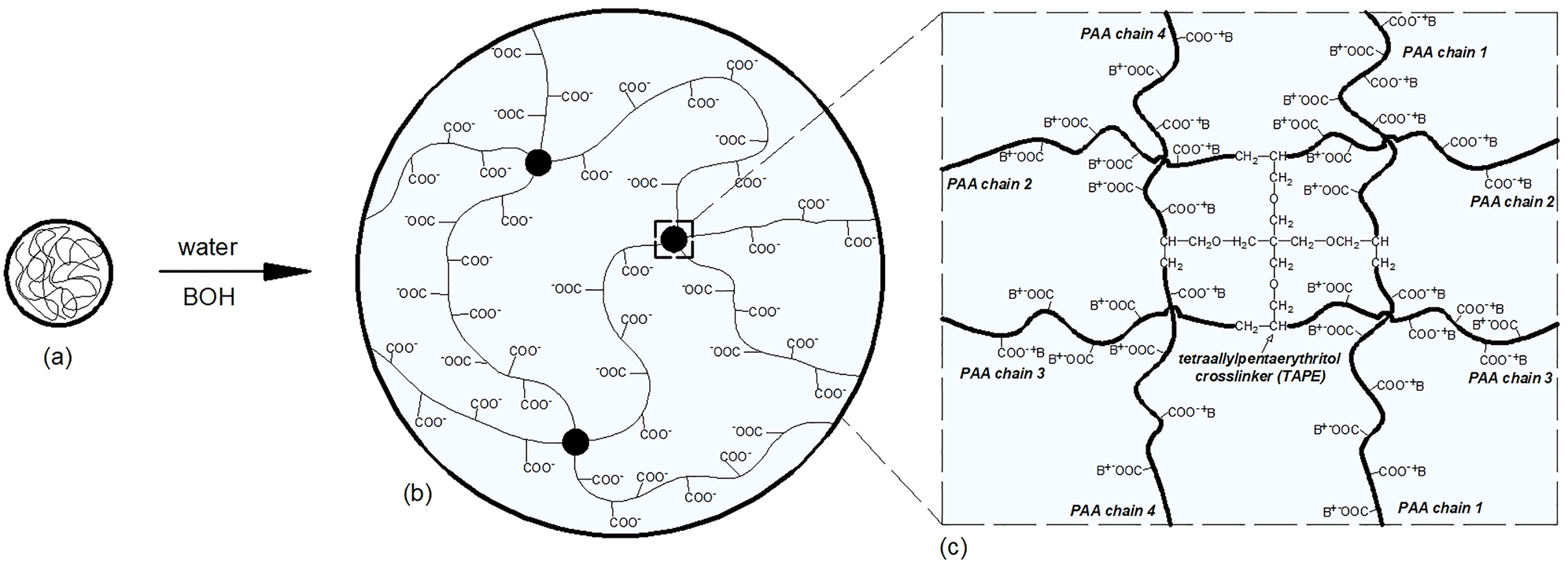Carbomer microgels as model yield-stress fluids

The review presents current research results for Carbopol-based microgels as yield-stress materials, covering three aspects: chemical, physical and rheological. Such a joint three-aspect study has no analog in the literature. The chemical aspects of Carbopol polymers are presented in terms of a cross-linking polymerization of acrylic acid, their molecular structure, microgel formulation, polyacid dissociation and neutralization, osmotic pressure and associated immense microgel swelling.
The physical characterization is focused on models of the shear-induced solid-to-liquid transition of microgels, which are formed of mesoscopic particles typical for soft matter materials. Models that describe interparticle effects are presented to explain the energy states of microgel particles at the mesoscale of scrutiny. Typical representatives of the models utilize attributes of jamming dispersions, micromechanical and polyelectrolyte reactions. Selected relationships that result from the models, such as scaling rules and nondimensional flow characteristics are also presented.
The rheological part presents the discussion of problems of yield stress in 2D and 3D deformations, appearance and magnitude of the wall slip. The theory and characteristics of Carbopol microgel deformation in rotational rheometers are presented with graphs for the steady-state measurements, stress-controlled oscillation and two types of transient shear deformation. The review is concluded with suggestions for future research.
Download the full article as a PDF here or read it here
Article information: Jaworski, Zdzisław, Spychaj, Tadeusz, Story, Anna and Story, Grzegorz. “Carbomer microgels as model yield-stress fluids” Reviews in Chemical Engineering, vol. , no. , 2021. https://doi.org/10.1515/revce-2020-0016

